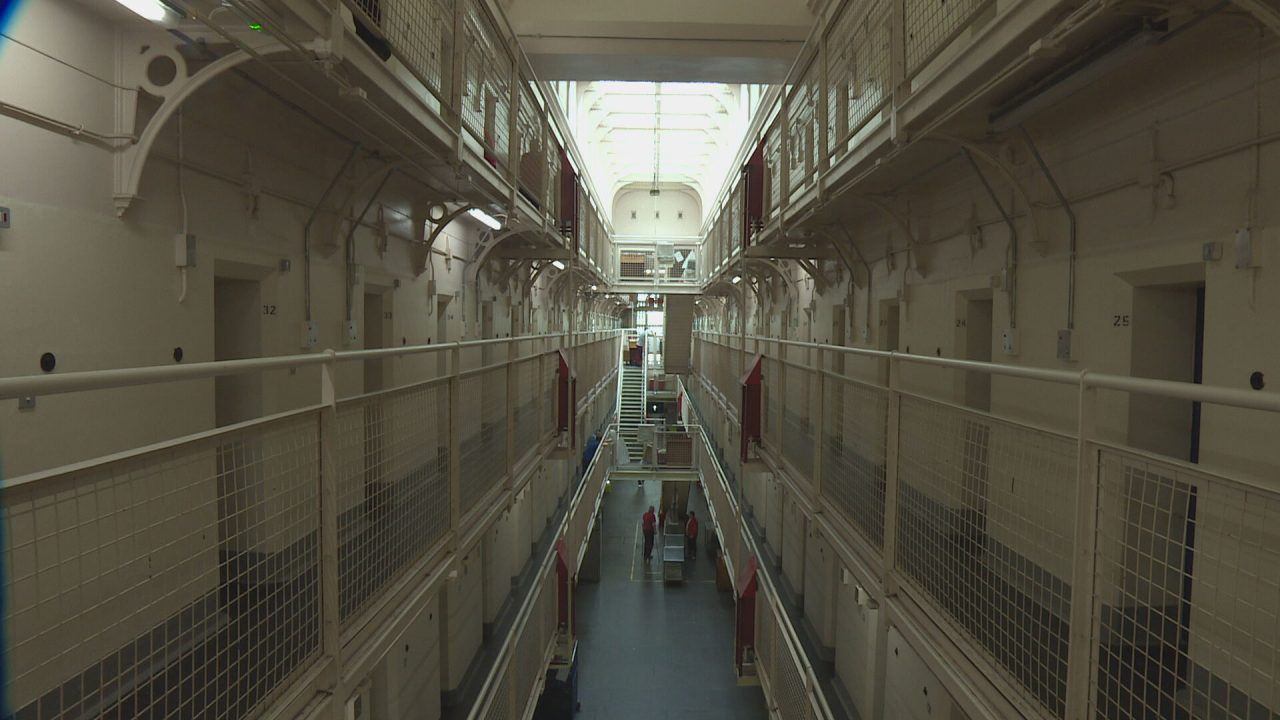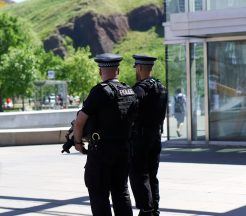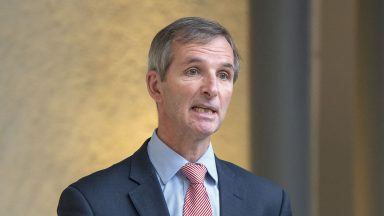Plans to release more than 500 prisoners early due to overcrowding have been voted through by MSPs.
The legislation was first announced by the justice secretary Angela Constance at Holyrood on May 16, following a spike in inmate numbers and concerns that capacity of prison estates were at “critical risk”.
After the plans were narrowly voted through by the Criminal Justice Committee on Wednesday, the regulations have now been given final approval by MSPs.
The proposals were passed by 66 votes to 47, with five abstentions.
It is understood that around 550 eligible prisoners will be released in four tranches from the end of June 2024.
Appearing before the committee, Constance said the prison population on Wednesday stood at 8,294 – down from 8,348 on the day the plans were announced but still well above the target operating capacity of 8,007.
Speaking in the chamber on Wednesday, she said: “Immediate and urgent action is needed to deal with the significant recent rise in the prison population. The same challenges in prisons are faced across the UK and the UK Government has taken similar action in England and Wales.
“Through this emergency early release plan, backed by Parliament, we are responding to this critical situation and ensuring the safety and welfare of staff and prisoners.”
Early release will only apply to those serving sentences under four years, and that prisoners serving a life sentence or on the Sex Offenders Register will not eligible.
Further exclusions have since been added, including prisoners who are subject to non-harassment orders, or who have an unspent conviction for domestic abuse.
Constance has said throughout the process that protecting the public remains her “number one priority” and that the emergency release is one part of a plan that requires long-term thinking.
She added: “Protecting the public remains my absolute priority, which is why there are significant and robust safeguards in place and only those due to be released in the next short while are eligible.
“Releases will also be completed in tranches so the necessary support can be provided to safely resettle released prisoners in their communities.
“We are working with victims organisations to ensure the right information and support is available where needed. In addition, the existing statutory schemes of information for victims will continue to ensure that victims who wish to receive information about an offender’s release, including emergency early release, can do so.
“This is part of a significant package of measures we are taking in both the short and longer term to deal with the continuing rise in Scotland’s prison population, which remains one of the highest in Western Europe.”
There have been concerns about the notification of victims, with those not registered with the victim notification scheme having to contact one of four victims support organisations to find out if the offender in their case is among those released early.
“Many victims of serious crimes will first hear about this on tonight’s news, this will cause fear and anxiety,” said Scottish Tory justice spokesman Russell Findlay.
“Prisoners being set free will have committed serious crimes, including violence.”
Findlay added: “The Government likes to take the moral high ground by preaching about smart justice, but it is not smart, it is weak.
“The emergency mass release will result in more crime, that’s what happened the last time (during the pandemic).
“We cannot support this and to do so would be to fail victims and to risk encouraging this Government to believe this is the new normal.”
Constance said “I very much recognise the public and victims’ concerns”, but added: “I want to emphasise that protecting the public remains my absolute priority.”
Scottish Labour also voted against the plans, with the party’s justice spokeswoman Pauline McNeill describing the expedited emergency process as “unsatisfactory” as well as saying the rising population in Scotland’s prisons was “known about for some time” before the powers were invoked.
Scottish Prison Service (SPS) chief executive Teresa Medhurst also appeared before the committee on Wednesday, where she laid out a stark picture of the state of the country’s prisons.
“It is my professional view that the use of emergency release is appropriate and necessary to protect the security and good order of prisons and the safety and welfare of prisoners and those who work in our prisons,” she said.
“With the population increasing at such steep levels, I have indicated to the Cabinet Secretary that we will soon no longer be able to meet the basic rights of prisoners.”
This was not driven by a “single factor”, the prisons boss added, telling the committee of the complexity among the prison population.
Follow STV News on WhatsApp
Scan the QR code on your mobile device for all the latest news from around the country


 STV News
STV News























